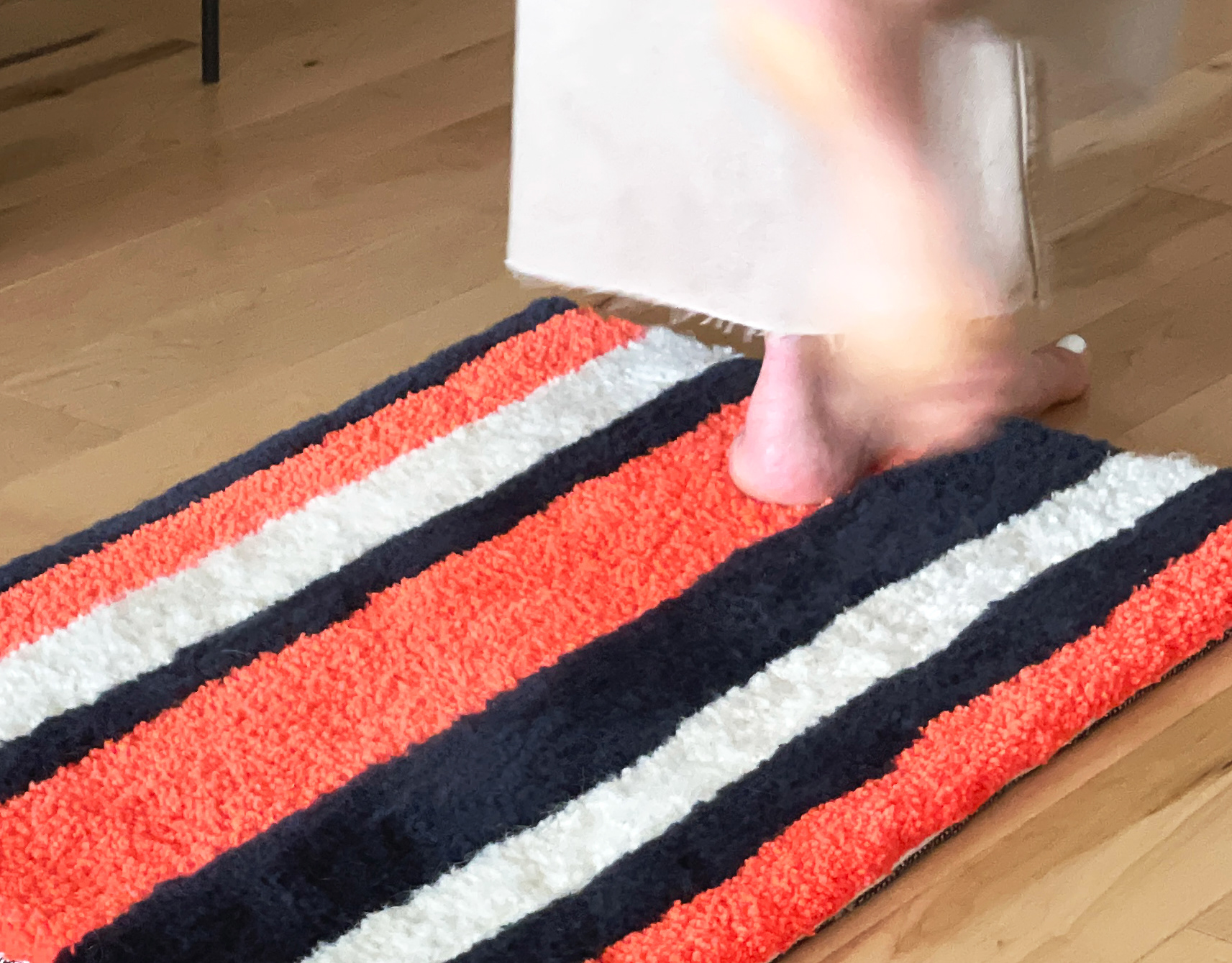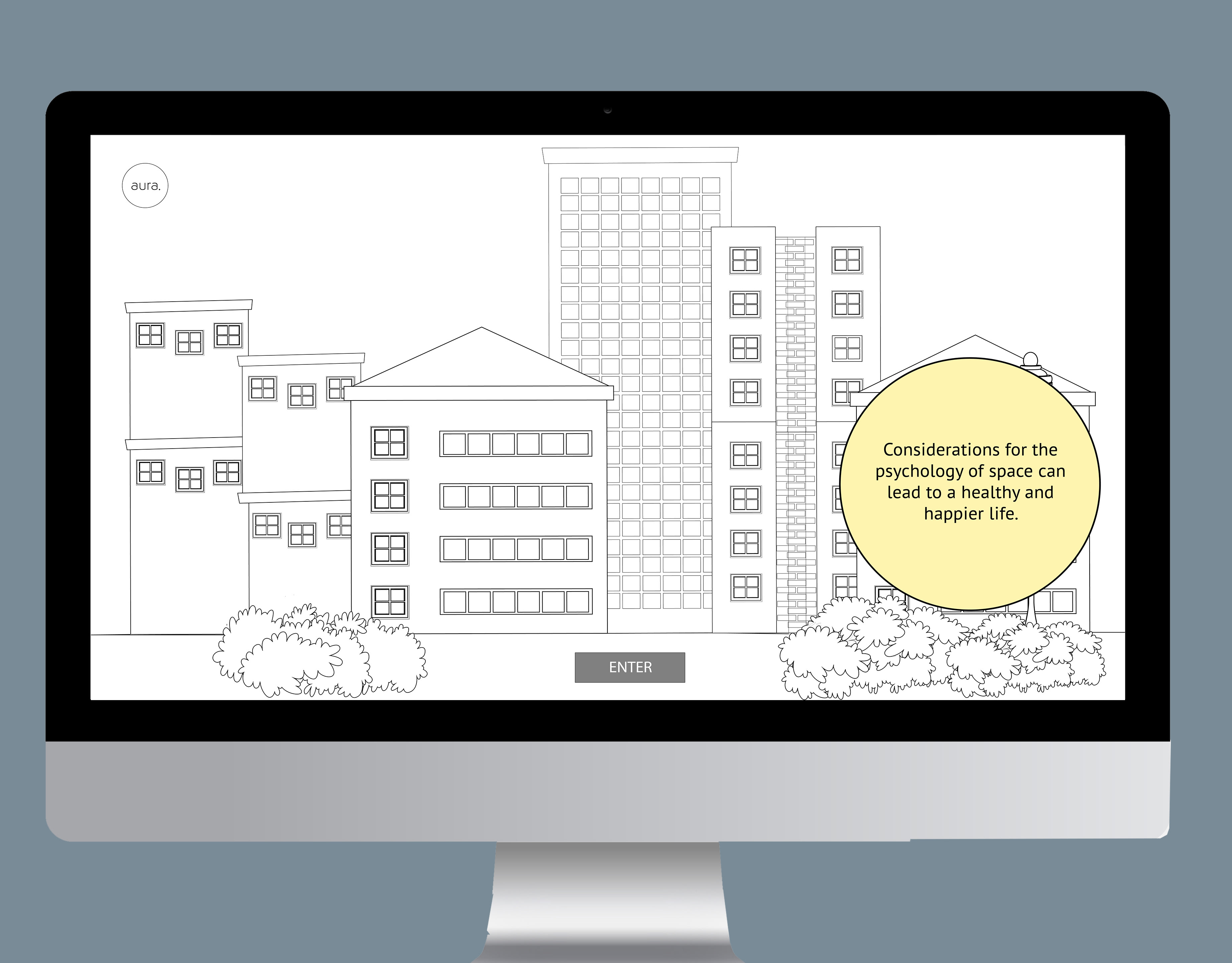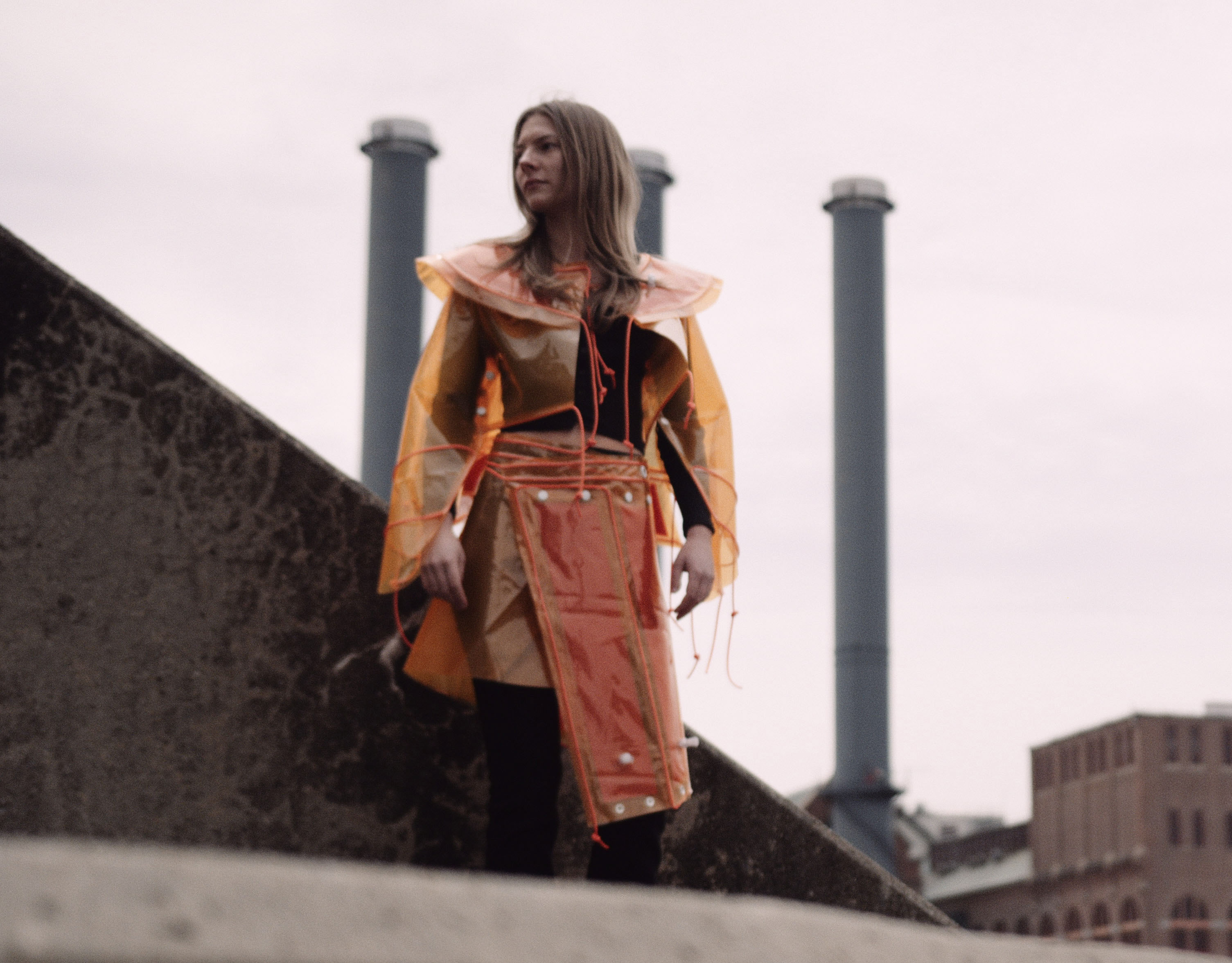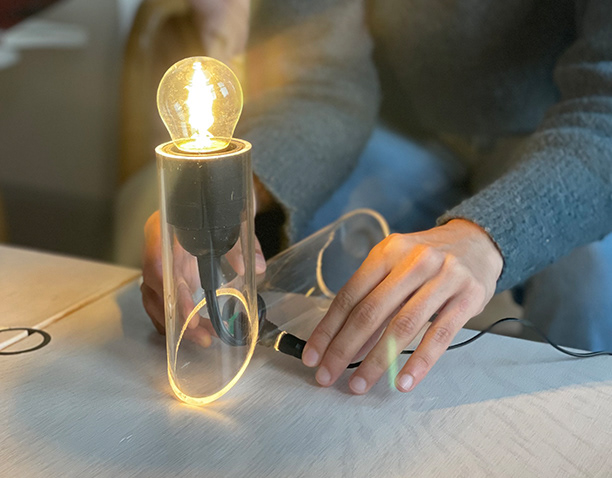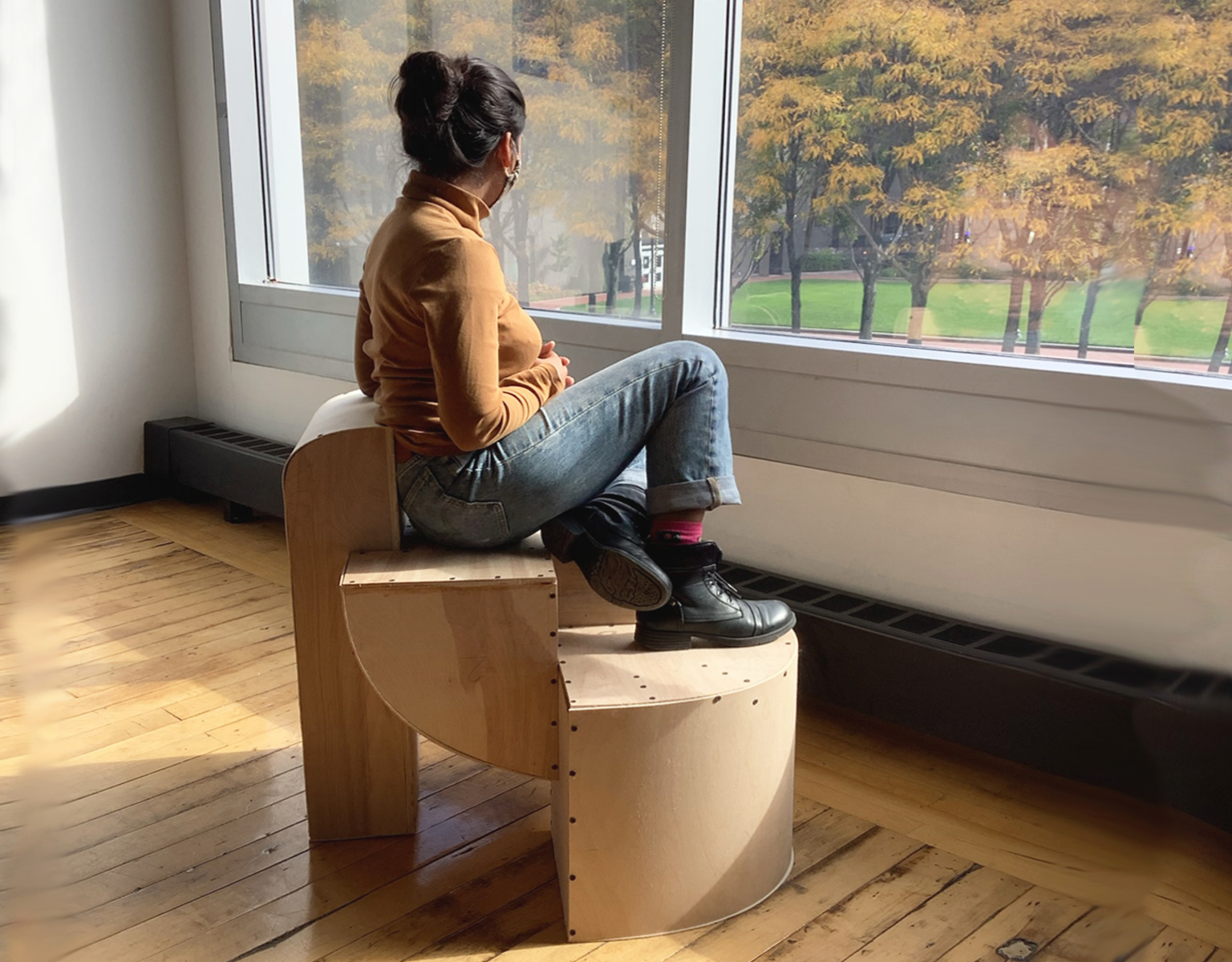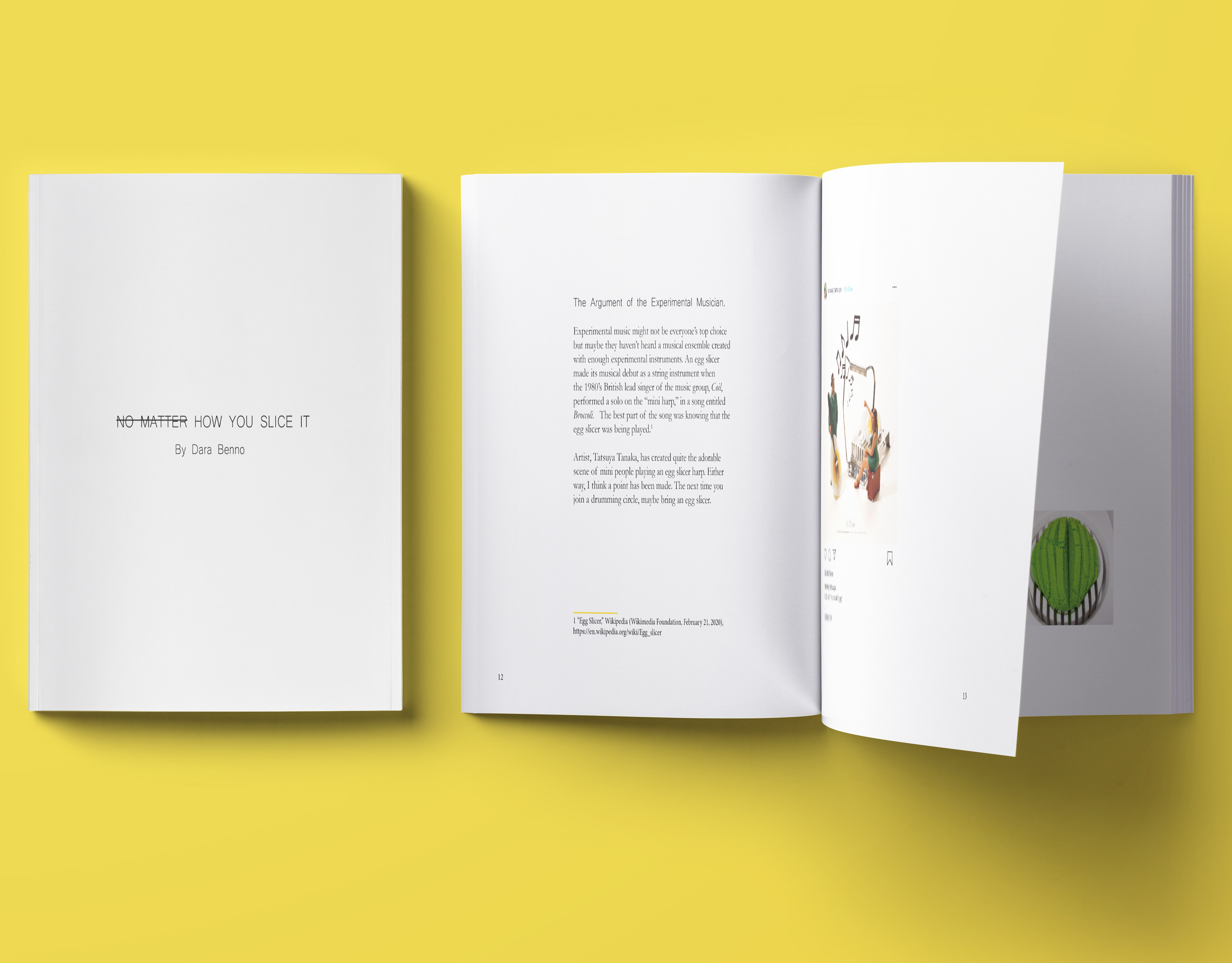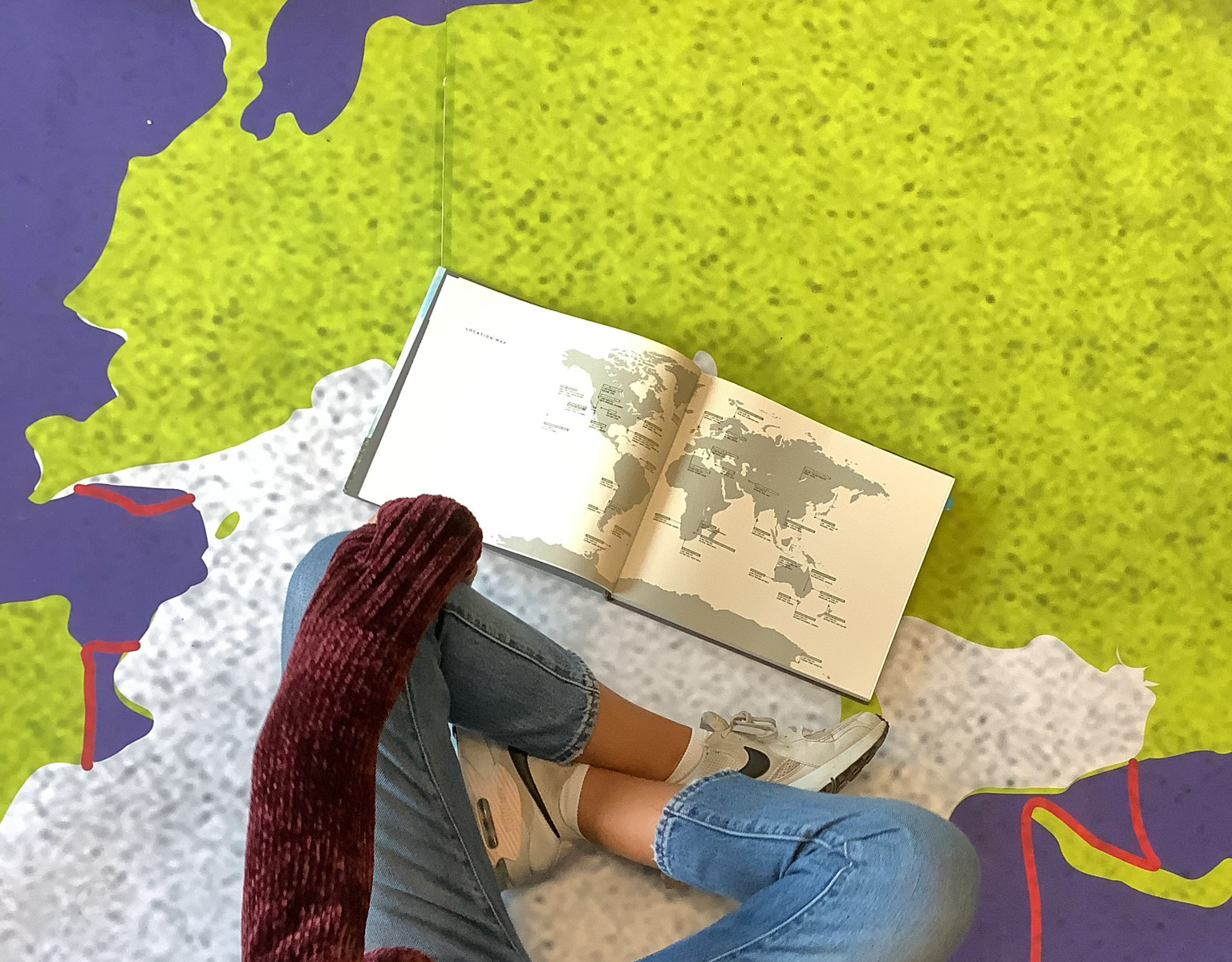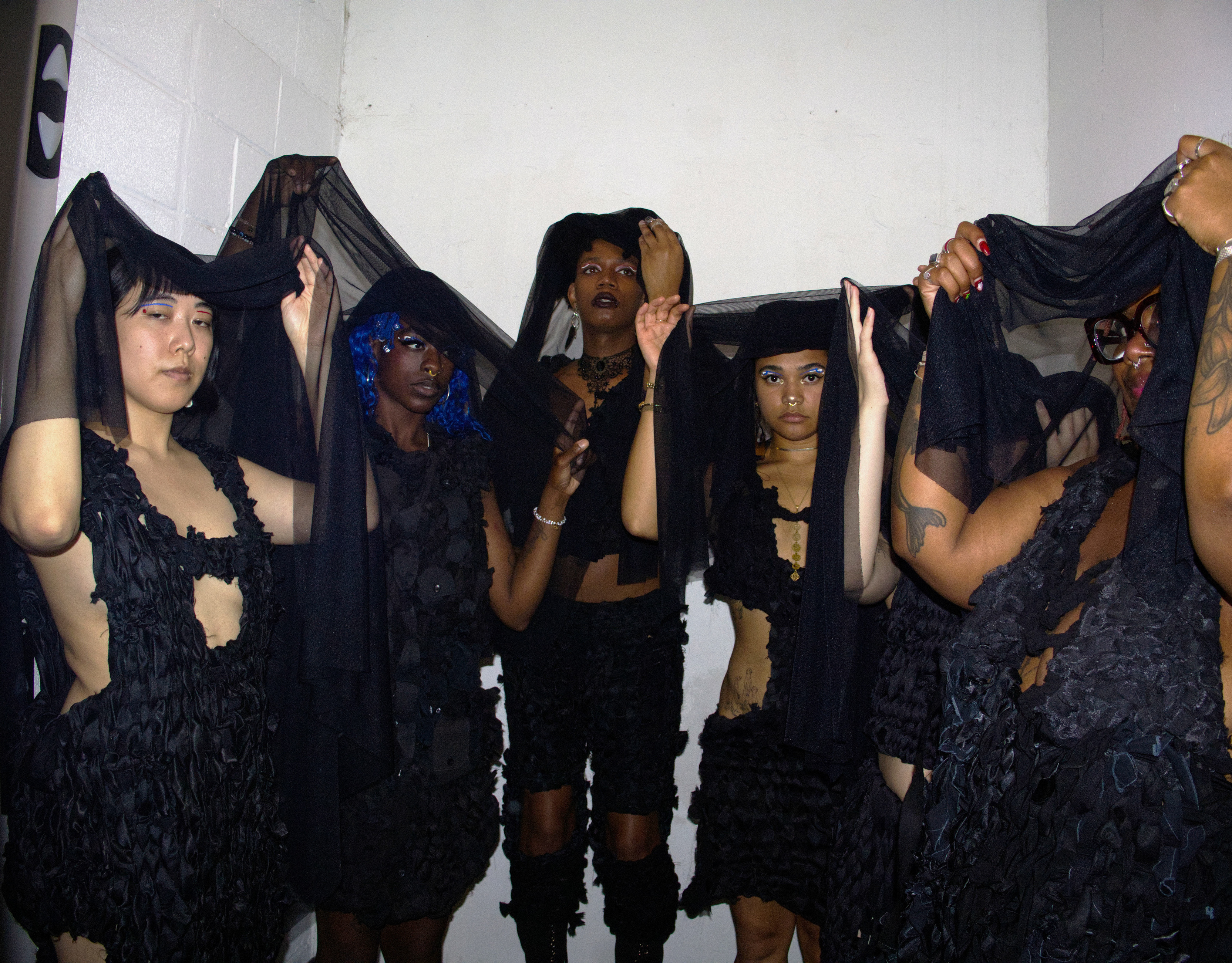What role can lifestyle objects play in changing human behavior?
I’m constantly noticing the spaces and objects around me and how an intended use or interaction can affect what otherwise may have been a predetermined behavior and mindset. This got me thinking about habits and why we form the habits we form. Are these actions responding to identified needs? Or are they responding to unmet needs we don’t feel we have control over? How can our interactions with the spaces and objects around us become more intentional in order to serve our minds and bodies in a supportive way?
If we think about and observe our own behaviors and rituals, will the mundane objects we interact with on the day-to-day start to present a certain influential power? Can inserting objects into our routines change what we may deem to be bad habits and lead to a state of being more present? Is there a symbiotic relationship between human and object that can encourage wanted behaviors and support a healthier lifestyle?
An observation on human/object symbiosis and behavioral outcomes.
Original writing and narration by Dara Benno.
Cinematography by Matthew Watson.
Research notes and sketches
Challenge
If people are unable to have their basic needs met due to ongoing environmental, social and financial struggles, how are they supposed to feel a sense of control in their own lives? When major issues, like the global climate crisis, pose urgent threats to these basic needs, how can individual need meet societal need in order to identify ways to change behaviors and systems both in our own lives and collectively?
Presentation of Maslow's Hierarchy of Needs as an outdated model.
Research + Insights
Working results analyzing personal and societal wants and needs.
Diving deeper into my research, I started interviewing people on what they view to be important in life. I asked questions about basic needs on the individual and societal level and how these basic needs are being threatened due to environmental and social issues. Together we discussed how our collective needs relate to our individual needs and issues including how our fast-paced lifestyles may lead to neglect of (self) care as well as how the climate crisis is affecting things as basic as our shelter, air, light and water.
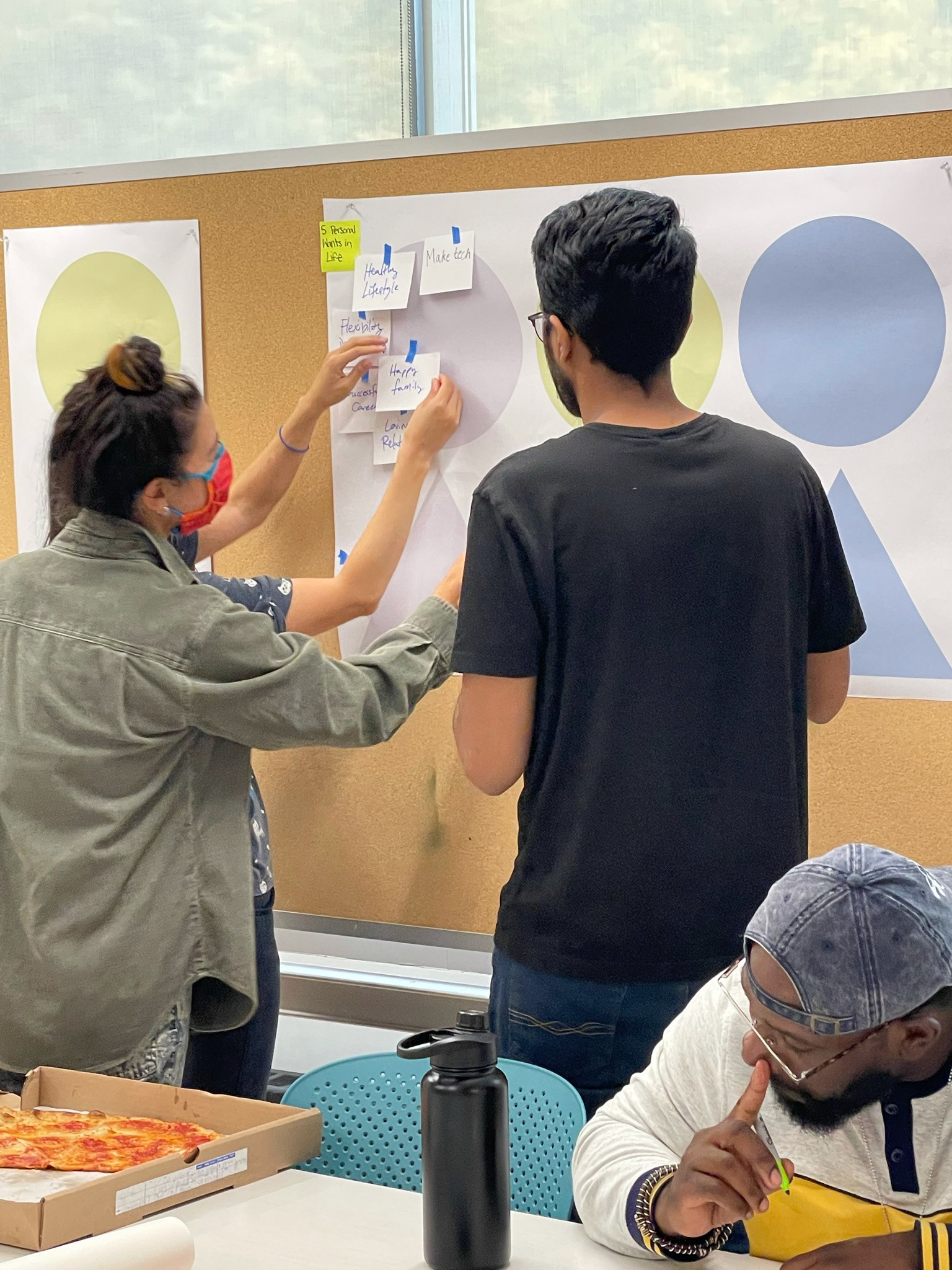
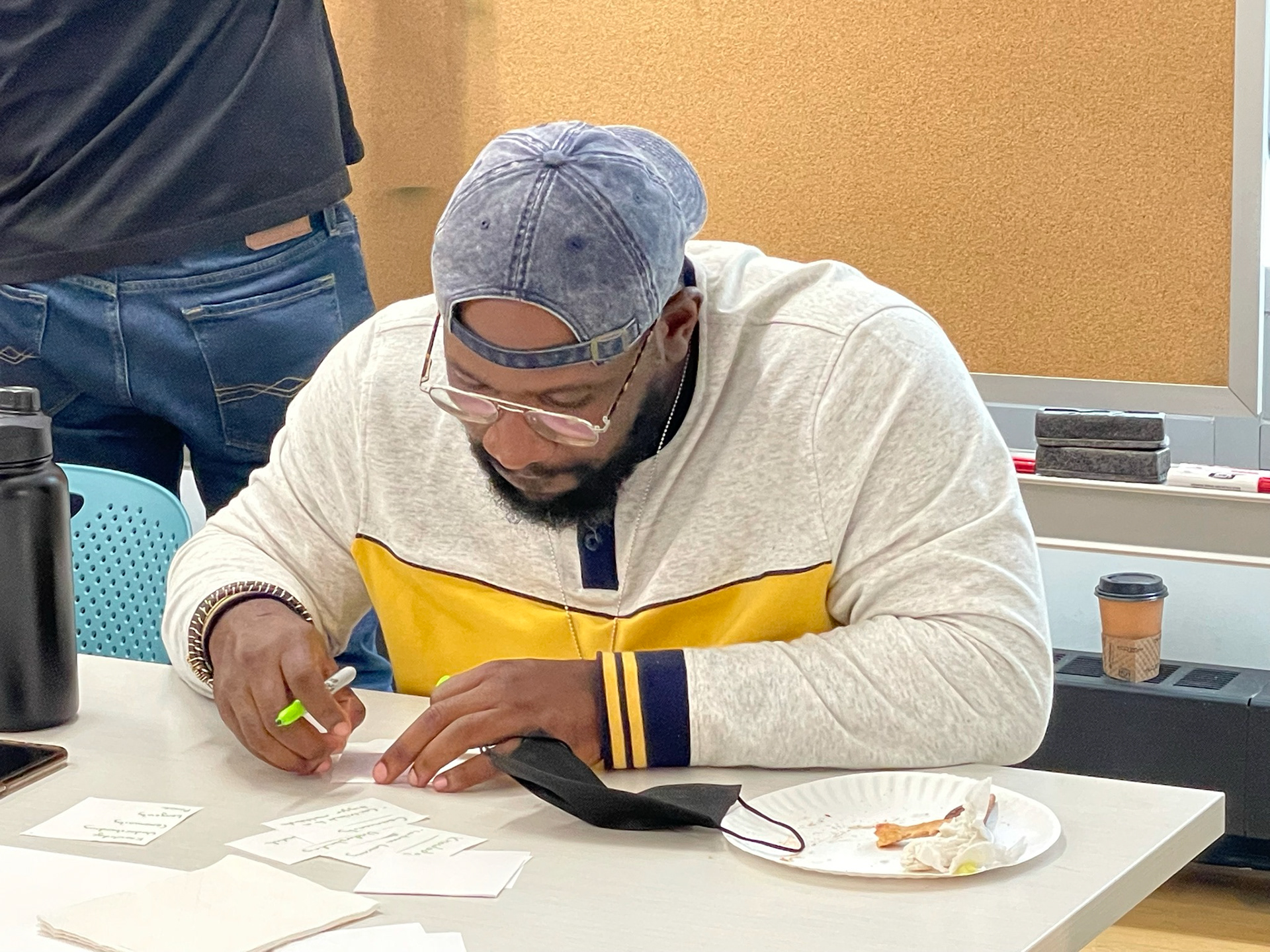
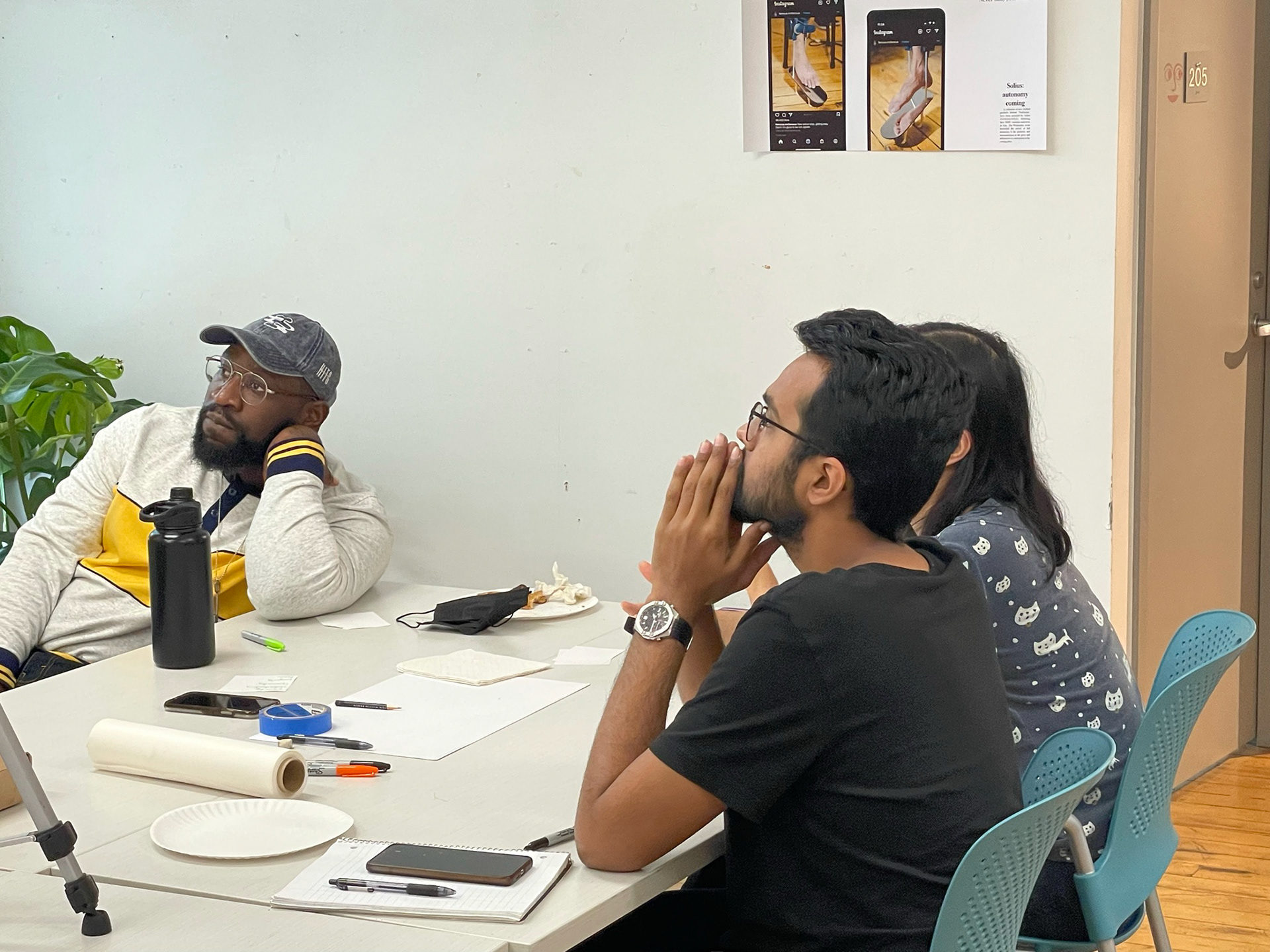
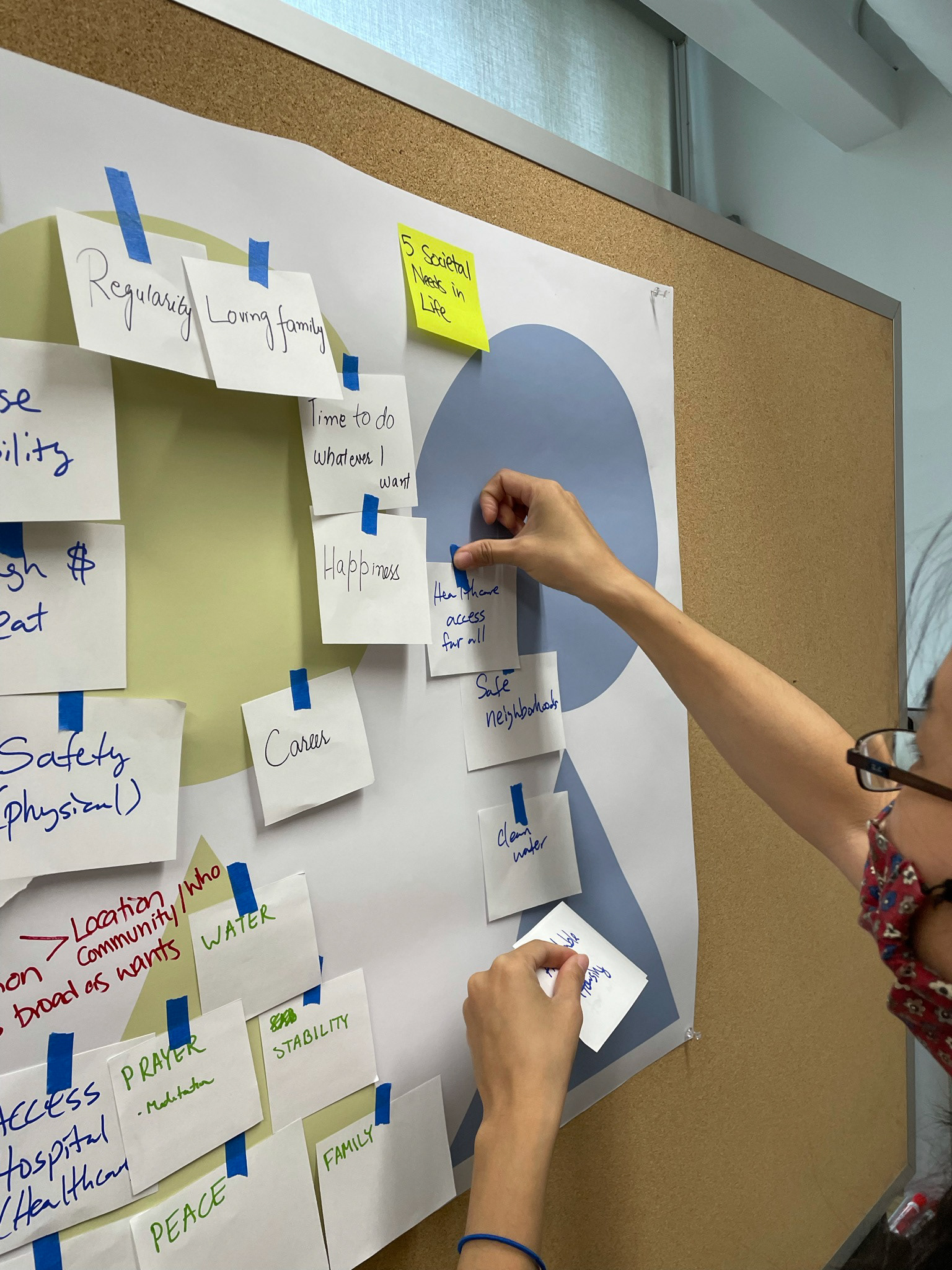
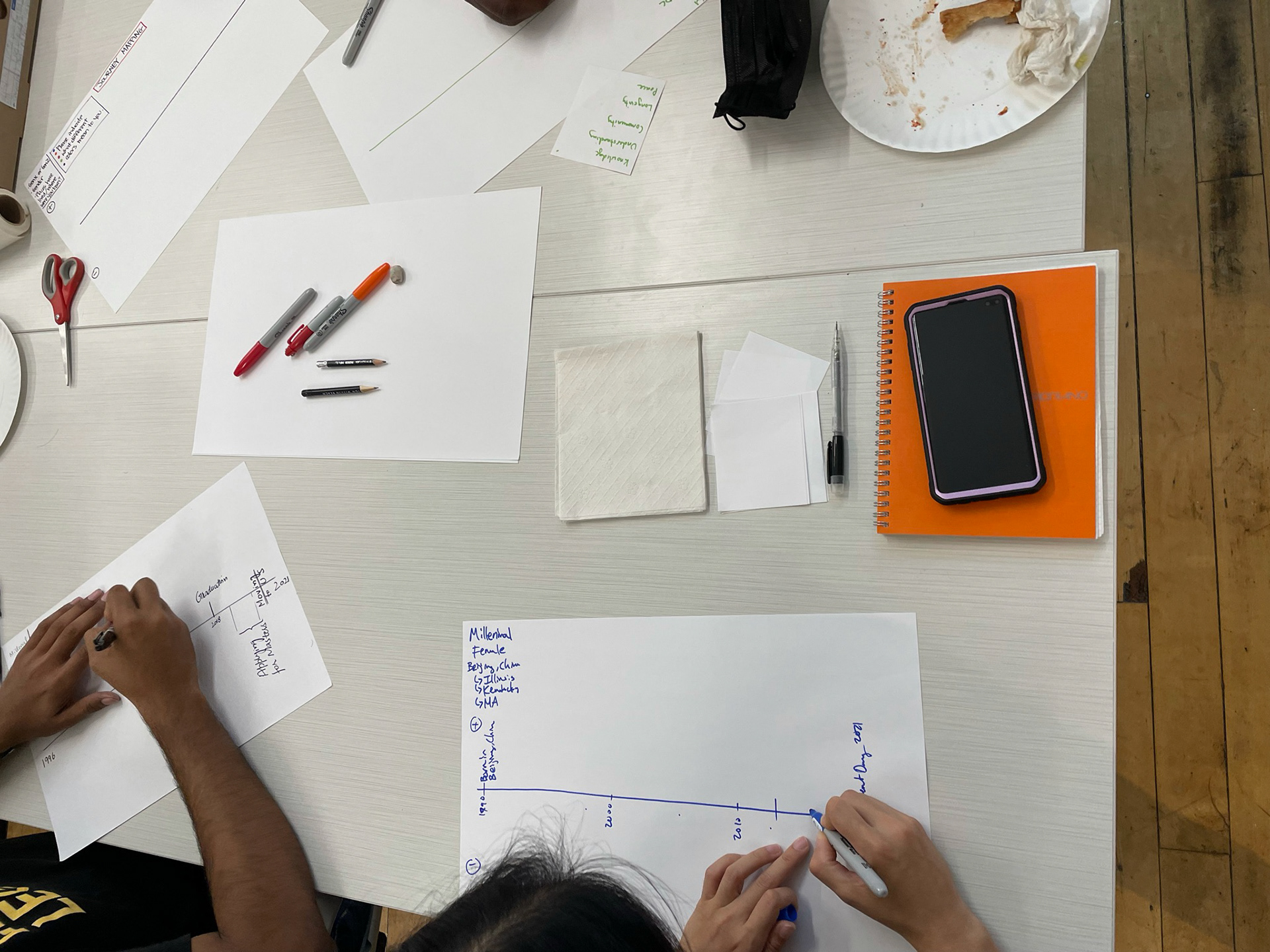
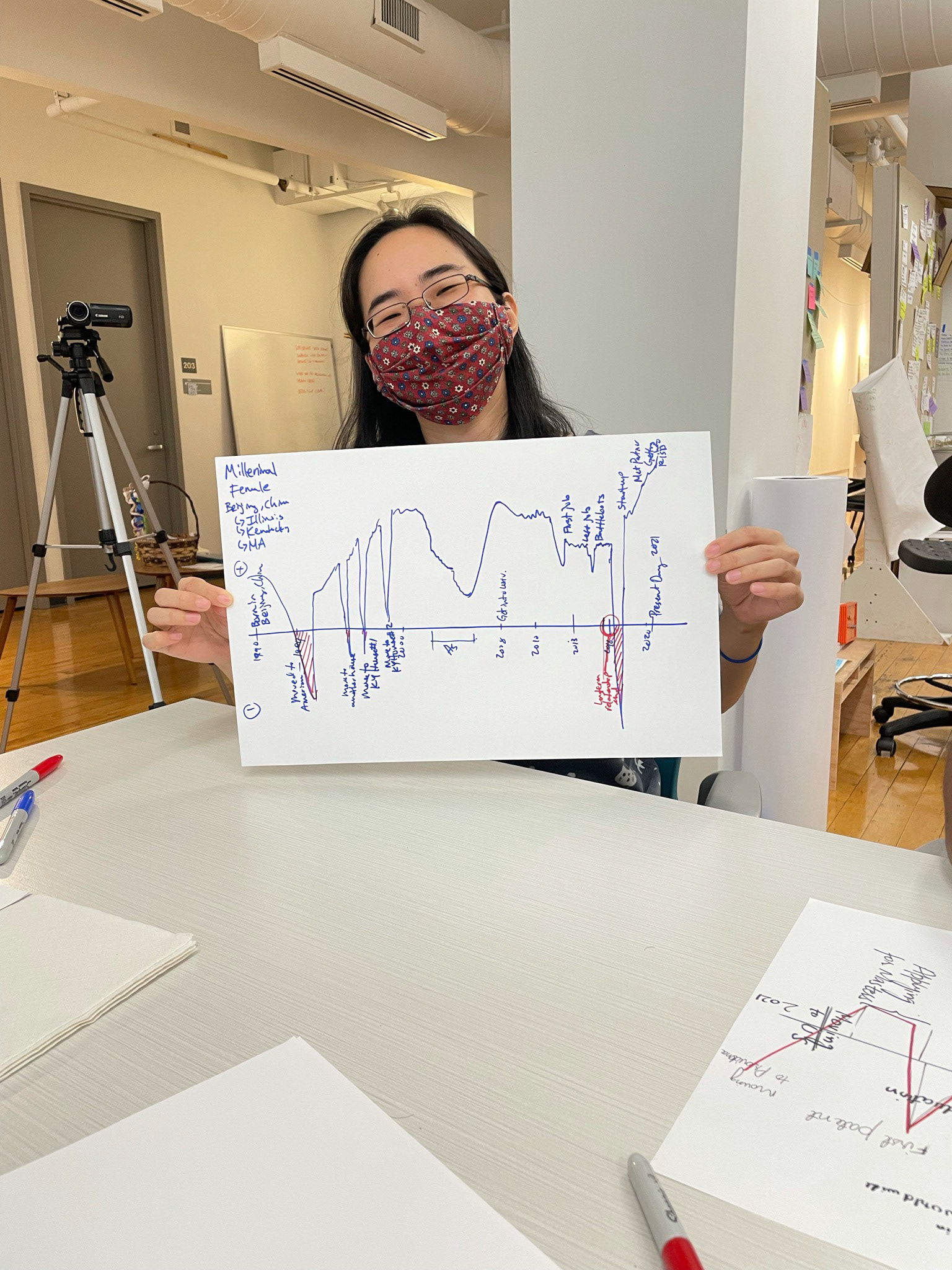
Group workshop questioning basic needs, accountability and lifestyle choices.
Opportunity
If we are to notice how our everyday interaction with the objects around us can create more moments of pause and intention can this lead to more focus on what truly matters in our lives? Can objects disrupt our existing routines in order to change or create new behaviors that support the health of our minds, bodies and planet?
Conversations on Awareness: A series of one-on-one interviews about basic needs, perceived threats and human behavior.
Outcome + Speculation
Research notes and sketches
These conversations helped guide me in further research on the psychology of how human behaviors form and how we might be able to utilize the objects around us as agents for change in order to address our threatened needs. I started to think more about how we can create a designed friction in our everyday lives in order to sift through the busyness of our day-to-day responsibilities and keep these important issues on the forefront of our minds. This present form of thinking can have the potential to empower people to make choices that can collectively implement change. The question therein lies in how objects can facilitate this behavioral shift.
